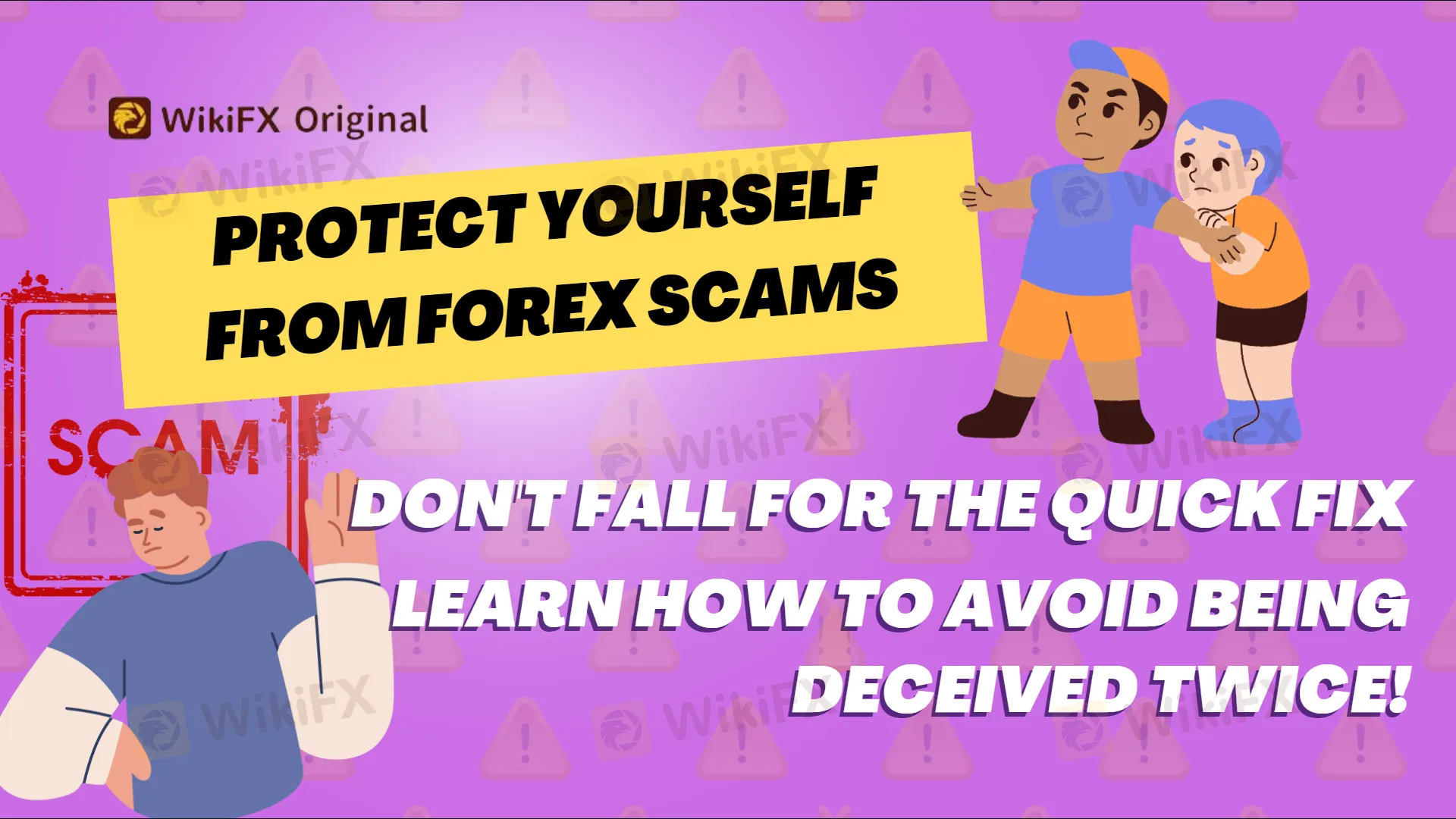Abstract:Forex trading rights protection exists, but scammers also exist. Beware of upfront fees, hidden fees, false claims, impersonation, and fake success stories. Use WikiFX's EMC channel for free forex trading dispute resolution. Maintain vigilance, provide evidence, and seek assistance from WikiFX's customer service. Soft dispute resolution through media coverage is an option, but legal action may be necessary.

Recently, many people have been asking WikiFX whether forex rights protection is real and reliable.
First of all, WikiFX want to declare that forex rights protection does exist, and not all rights protection agencies are scammers. However, as forex financial frauds increase, some unscrupulous individuals see it as an opportunity to commit second scams by claiming to help defrauded investors protect their rights. Based on the descriptions of investors who have been scammed twice, WikiFX have summarized several situations to help every forex investor who has suffered losses to avoid being scammed again and successfully protect their rights.
Upfront fees: These scams involve charging victims upfront fees for legal representation or recovery services before any actual work is done. In some cases, the scammers will fail to deliver on their promises, leaving the victim out of pocket. This type of scam is relatively rare, but it does happen.
Free initial services with hidden fees: In this scenario, the scammers offer free legal representation or recovery services at first, but then later convince the victim to deposit money into a different platform as part of the recovery process. This is not a legitimate recovery step, and victims who follow through with these requests often find themselves targeted by secondary scams.
False claims of being a hacker: Some scammers claim to be able to retrieve lost funds through high-tech hacking techniques, but require payment upfront to perform these services. These claims are generally untrue, and victims who fall for this type of scam are at risk of losing even more money.
Impersonating legitimate recovery services: In this scam, fraudulent organizations impersonate legitimate recovery services to gain victims' trust, then fail to follow through with their services or simply disappear altogether.
Sharing fraudulent success stories: Scammers may pretend to be victims who have successfully recovered their funds and share their “experience” with others to gain their trust. Victims should be wary of these claims and do their own research before trusting any recovery service.
In summary, forex trading rights protection does exist, but so do scammers. Choosing a legitimate rights protection agency and remaining vigilant, not easily believing promises that are too exaggerated in advertising, is an important step in protecting your own property. We hope that everyone can protect their property and personal information during the forex trading rights protection process, and avoid becoming victims of fraud again.
If you don't know how to protect your rights, WikiFX currently has a very useful function - the EMC Channel Rights Protection Function. Here, affected investors can “meet face-to-face” with the trading platform to solve problems, which is the 1V1 rights protection that Tianyanjun has been mentioning before.
For example, in the face of some sudden situations, legitimate platforms will still have situations such as slippage, deposits and withdrawals, because black platforms will run away and platform customer service will ignore it. Investors are more concerned about their recent withdrawal status. In order to reassure investors, WikiFX provides the EMC channel for some trading platform users, which means that if you encounter any problems when trading on the platform, you can use this channel, and the trading platform will timely and effectively meet your demands!
The most important point is that there is no charge for rights protection on WikiFX! It's free, even if the rights protection is successful, there will be no fees in the later stage!
How to use WikiFX for forex trading dispute resolution
WikiFX has recently launched its EMC channel, a powerful tool to help investors resolve disputes with forex brokers. The EMC channel is available on both the WikiFX mobile app and PC platform. To access the EMC channel, simply click on the “100% official intervention” button, and you will be directed to the 1v1 dispute resolution interface. This feature enables investors to communicate directly with brokers, making it easier to resolve disputes in a timely and efficient manner. With the EMC channel, investors can rest assured that their rights and interests are protected, and that they have access to professional assistance whenever they need it.

So how can traders without the EMC channel go about protecting their rights? First, they can contact the customer service of WikiFX to record their complaint and try their best to contact the relevant trading platform to resolve the issue. Second, they can submit a complaint on the relevant page of the trading platform.

So, what do you need to prepare for forex trading dispute resolution? To help the trading platform quickly solve the problem, it is necessary to clearly explain the encountered issue and provide appropriate screenshots as evidence. If you have other questions or are not sure about the specific dispute resolution process, you can contact the official customer service of WikiFX for assistance.
Finally, WikiFX has something to say: Why choose WikiFX for forex trading dispute resolution? Taking proactive steps to resolve disputes can reduce waiting time. In the event of a forex trading platform's inability to withdraw funds, it is important to retain evidence and choose to seek resolution as soon as possible. This is not only responsible for one's own funds, but also serves to remind other victims who may be unaware of the situation. WikiFX is committed to speaking up for forex investors who have been defrauded and protecting their rights, so choosing WikiFX is definitely not wrong!
Maintain a vigilant and rational approach: Be vigilant regarding any irregular issues that arise on the trading platform, and use rational judgment when evaluating any excuses given by the platform. In the event of a problem, promptly submit a complaint to WikiFX. This not only helps determine if the problem is common, but also increases the chances of actively seeking to recover funds.
Soft dispute resolution through media coverage: Dispute resolution is not an easy task, nor is it a one-time effort. Utilizing the advantage of media coverage, WikiFX speaks out for victims. If this soft approach is still unable to achieve resolution, investors still need to report to the police and seek legal assistance to resolve the issue.












